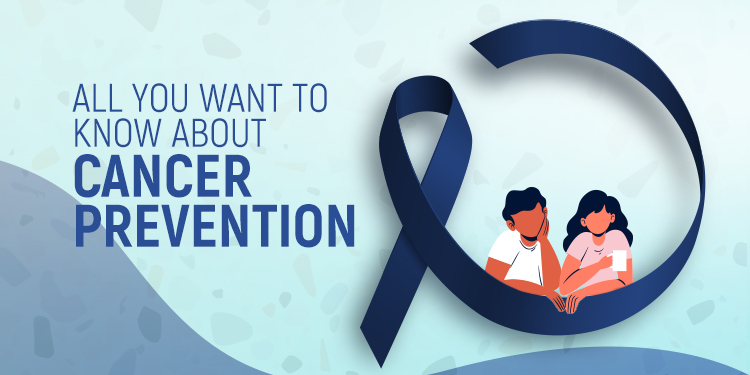Overview
Cancer is a complex group of diseases, where abnormal cells grow errantly to form a mass or tumor. It can develop in any organ or tissue, anywhere in the body. The cancerous tumor draws nutrients from body tissues, crosses the usual boundaries, invades the adjoining parts, and/or spread to other organs through metastasis to form new tumors.
Types of cancer
Cancers are generally categorized on basis of origin and type of cell of the tumor
Table 1: Types of cancer| Type | Origin |
|---|---|
| Carcinoma | Skin or the tissues that line the organs |
| Sarcoma | Connective tissues [Bones, muscles, cartilage, blood vessels] |
| Leukemia | Bone marrow [creates blood cells] |
| Lymphoma and myeloma | Immune system |
Increasing Burden of Cancer
In 2018, there were approximately 18.1 million new cases and 9.6 million cancer-related deaths globally. ICMR reported that approx. 2.25 million Indians had cancer, with 11.6 lakh new cases, and 7.8 lakh cancer-related deaths [Figure 1].
Figure 1: Deaths due to cancer in 2018
The common cancers that affect the Indian population are Oral, Breast, Cervical, Gastric, and lung cancers.
Table 2: Top 3 cancers in men and women| Men | Women |
|---|---|
| Lip, oral | Breast |
| Lung | Oral |
| Stomach | Cervix |
Risk Factors for Cancer
Certain attributes increase the risk of cancer such as
-
Lifestyle factors
- Smoking/Tobacco use: Tobacco use is a significant risk factor accounting for 27.1% of the total cancer burden in India and 22% of cancer-related deaths worldwide
- Excessive alcohol use
- Lack of physical activity / Obesity
- Unhealthy Diet/poor nutrition: A high-fat diet, processed meat, red meat, preservatives, smoked, highly barbequed foods increases the risk.
- Older Age:
Cancer can affect any age group but commonly diagnosed in people ≥50 yrs of age -
A personal or family history of cancer:
Individuals with a family history or personal history are at higher risk of cancer due to an inherited gene mutation. - Environmental factors:
- Exposure to ionizing [x-rays] and ultraviolet radiation [sun]
- Air pollution
- Indoor smoke [household use of solid fuels]
- Chemicals exposure [asbestos, pesticides]
- Infections:
Certain infections caused by viruses [Table 3] and bacteria [Helicobacter pylori (for stomach cancer)] may increase the risk. Some infections are transmitted sexually or through contaminated needles.
| Virus | Cancer |
|---|---|
| Human papillomavirus (HPV) | Cervical, Penile, anal Ca |
| Epstein-Barr Virus | Burkitt Lymphoma |
| Hepatitis B, C virus | Liver cancer |
| HIV | Lymphoma, Sarcoma |
Be aware of warning signs and symptoms
American Cancer Society has developed C.A.U.T.I.O.N to bring awareness amongst people
C: Change in bowel or bladder habits
A: A sore/lesion that does not heal
U: Unusual bleeding or discharge
T: Thickening or lump in the breast or elsewhere
I: Indigestion or difficulty in swallowing
O: Obvious change in a wart or mole
N: Nagging cough or hoarseness
If any of these symptoms are present for a long time, don’t hesitate, talk to a doctor at DocOnline and get immediate guidance…
Research has been going on all over the world to understand the roots of cancer. There are many treatment options available for various types of cancer that may or may not cure the disease. However, few cancers can be prevented or treated effectively if detected at an early stage.
Prevention is the best medicine…
Almost 50% of cancer can be prevented by avoiding risk factors and following tips [Table 4]…
Table 4: Tips to prevent cancer| Dos | Don'ts |
|---|---|
| Have a healthy diet rich in fruits, vegetables, whole grains | Avoid Smoking/Tobacco use |
| Exercise regularly | Limit alcohol consumption |
| Have a good sleep to boost immunity | Avoid processed meats, high-fat foods... |
| Maintain a healthy body weight | Avoid risky behaviors (don’t share needles and practice safe sex) |
| Protect skin from the harsh sun | Avoid unneeded exposure to radiation |
| Get vaccinated (HPV and Hepatitis) | Reduce occupational exposure to chemicals |
| Get regular medical check-ups and cancer screening |
Treatment depends on the type of cancer, stage at diagnosis, and overall health of the patient.













